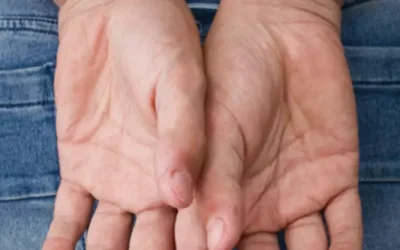Content
Some employers may even be understanding and willing to give you a chance to prove that you are dedicated to improving. If you didn’t participate in family therapy while in treatment, consider doing it now. Family or relationship therapy can help you learn how to communicate more effectively with each other. A therapist can teach you the skills you need to communicate and provide an opportunity to practice in a safe environment. When you struggle with addiction, your relationships take a hit. Often the biggest roadblocks to repairing those relationships is the loss of trust.
Can you come back from trust issues?
It's possible to rebuild a relationship after a breach of trust. Whether it's worth it depends on your relationship needs and whether you feel it's possible to trust your partner again. If you do decide to try repairing things, be prepared for things to take some time.
Anywhere from 40%-60% of recovering individuals slip up once they are sober. If they are under professional treatment this will get better with time and patience. And in this blog from Bayless Integrated Healthcare, we’ll look at a few ways that addiction harms relationships – and ways you can rebuild your relationship during recovery.
Struggling With Porn Addiction?
With automated payments and continuing to build daily living skills such as budgeting and time management, a solid foundation for a financial future can be established. Decreased worry about money goes a long way to reduce the risk of relapse. Creating and sticking to a routine can be powerful in rebuilding trust. Laura recommends establishing a consistent sleep routine by going to bed and waking at the same time daily. Showing up on time to work and family events, and attending regular meetings all model a desire to do better and lessen the stress for family and work colleagues.
Sticking to a routine can help establish credibility, reliability and commitment to sobriety. Addiction is a complex disease that causes harm, not just to the person struggling with it but also to their loved ones. One of the most significant casualties of addiction can be trust.
Becoming a Trustworthy Person
Sometimes, when the family member abusing substances shows responsibly in changing like being involved in an intervention, or attending treatment, trust can begin to grow. This allows relatives to believe the individual is making strides to change for the better. Additional ways to restore trust can be the decision to attend 12-Step meetings, which require members to be accountable for broken relationships. If you know in your heart that you have done all you can do then don’t worry about it. From this point onward, every relationship you make will be based on an honest, trustworthy, and sober foundation. If you remain a good person and continue to do the right thing, good things will happen for you.
Repairing your relationships with those closest to you can be vital to your recovery since they will be the pillars you can lean on for trusted support. Remember, trust doesn’t come back all at once – it’s hard-earned and easily lost. Don’t expect anyone to regain complete faith in you instantly. Their experience has taught them to be cautious, and giving them time and space to relearn to trust you is the only path forward.
Stay Patient
Substance abuse tends to leave a trail of destruction regarding trust and relationships. Drugs and alcohol can lead you to behave in ways that may be out of character, leading to a lot of wreckage, including broken trust. The great news is that with time and a lot of work, trust can be rebuilt if both or all parties are open to it.

One thing to remember when setting boundaries is that your loved one is still in the early stages of recovery, which means they may make mistakes. If the base of the bond is rebuilding life after addiction substance abuse, it’s not worth repairing. There is a serious risk of falling back into reckless habits. The wrong support circle will end up in the same, wrong habits.
Online Therapy
Over time, lying and secretive behavior can erode a relationship and any trust that previously existed between the people involved. We have treatment programs that include a medication-assisted detox, residential treatment, and several intensive outpatient programs. Because family relationships are so important, and typically seriously harmed by addiction, we also have a family therapy program. Our licensed therapists and addiction specialists will create a treatment plan specifically for you.
When your loved ones can see you want help with your addiction, it can lay the foundation for rebuilding trust. Unfortunately, your family or friends may suspect that you https://ecosoberhouse.com/ have returned to drugs due to your isolation. Thus, you can gradually rebuild trust by being communicative and staying in close contact with your friends and family.
Making amends to those you have hurt is the beginning of the healing process. Even if an individual has achieved sobriety and is ready for a better life, their loved ones may not be ready to embrace them. It’s important for individuals not to get discouraged when this happens. If you’re struggling to manage these steps on your own, consider reaching out to the mental health and addiction professionals at All Points North. You can reach our team via the live chat function on our website or by filling out our online form.

